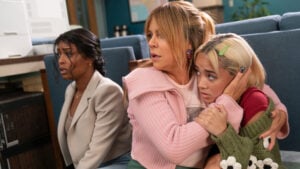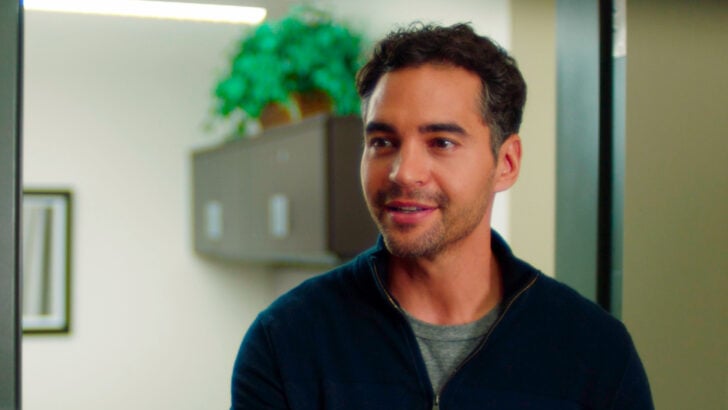Brilliant Minds Season 1 packed some emotional gut punches, including Ericka’s PTSD from watching Celia die from the elevator collapsing. It was an incredibly emotional hour of TV.
TV Fanatic has a special treat for you. We interviewed director and EP DeMane Davis, who also directs NBC’s Found. I’ve wanted to interview her for a long time since she’s a delight to chat with on social media, and she was fascinating to talk to.
Davis shared how the directors were involved with Brilliant Minds’ creative process, including the advice she gave Ashleigh LaThorp’s Ericka about how to appear traumatized.
Since Davis is active on social media, she shared if she’s ever used ideas from there in an episode.
Check out the interview below.
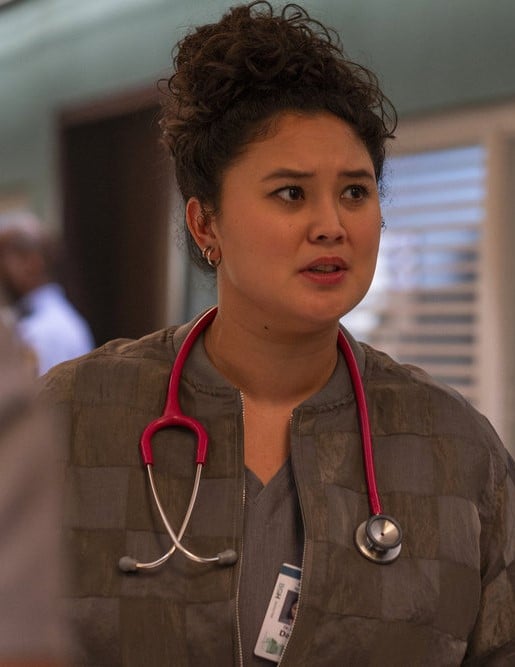
Hi, DeMane; it’s great to see you after talking to you on social media. Can you tell me how involved you were with the creative process of Brilliant Minds?
Michael Grassi, the showrunner and EP, created an incredible show. He wanted to allow the directors to get in the head, the heart, the mind, and the body of the patient so that the audience understands because it’s mental health.
So, if you see someone who has a broken leg and is going to open a door, you might help them open it. But you will stand back if you see someone acting erratically or having an episode.
Doctor Oliver Sacks would walk right towards that person and say, how can I help you? What’s going on?
Every director could portray the medical issue on their own. They would come up with that and pitch it to understand why he would do that and to see that he had the vision and foresight to understand what a person was going through.
I created a lookbook using the language Michael and the pilot director, Lee Toland Krieger, used to make the show. I gave that to each director, and we had long talks about what they would do for the episode. Then, they would pitch their idea and explain how it would work.
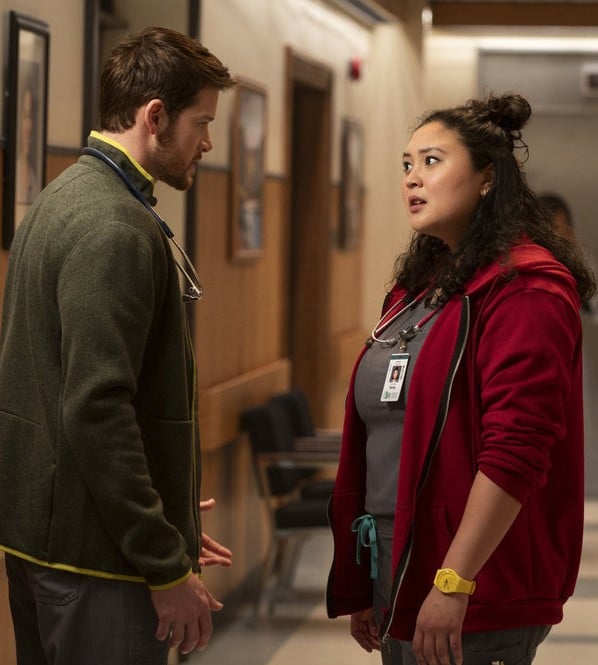
In Brilliant Minds Season 1 Episode 4, Deborah Kampmeier did it differently by making things out of focus. In Brilliant Minds Season 1 Episode 5, Charles Randolph-Wright created the ghost by turning, and it would be there.
That was unique because a director doesn’t usually get the opportunity to create something.
Beyond that, I was the producing director. So, I was there, boots on the ground from day one, watching the sets go up, which I love, and helping department heads work together to move the show forward. And then I got to direct two episodes, which was the creme de la creme.
I’m fortunate to have been part of a show that does some good. I’m grateful I’ve worked on shows I love and have already watched, and I feel I can do good in the world. This show is that.
So, what was your favorite storyline arc this season?
I did Brilliant Minds Season 1 Episode 3 with Steve Howey called The Lost Biker, which was near and dear to me because he had memory lapses, and my mom had that. Since Michael Grassi permitted the directors, we could discern what it would feel like to be in Wyatt’s mind.
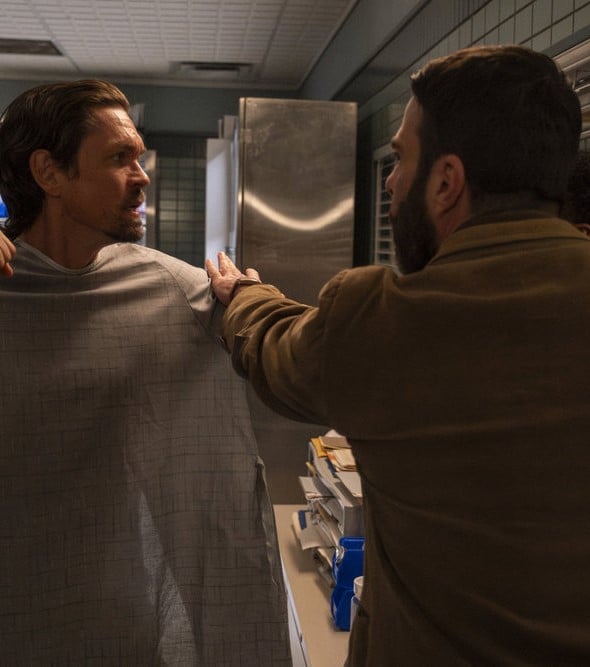
Creating that curtain and this, the memory falling, and that limbo space felt like an achievement to do that and just the crew coming together to achieve that.
We did a couple of tests beforehand to ensure that it would work, like testing different weights of materials to ensure it would fall just the right way. That was wonderful.
The finale featured incredible emotional beats, tied up the storylines, and progressed the characters. The crew saw how things evolved. We had 60 extras in the pilot episode; they had 60 extras and averaged around 30 background actors in most episodes.
However, Brilliant Minds Season 1 Episode 12 is full of people because of what’s happening. I love to see how the sets evolve and how things have come to fruition. Those two episodes are babies for me.
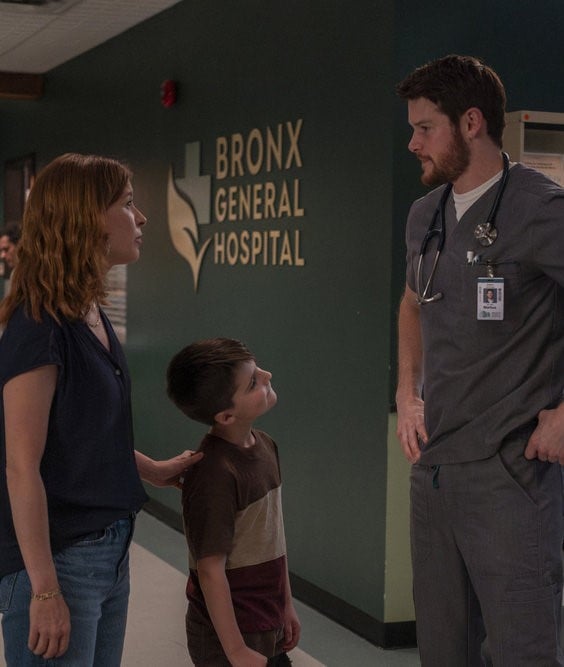
Steve Howey mentioned you in my interview and how much he liked having you direct him.
He did. That was awesome. Thank you for that. It was amazing to read. He’s such a great guy. I still text him to this day. Just before the episode came out, I told him I couldn’t wait for him to see it. Then he saw it, and he said he felt terrific about it. There’s nothing like that. He just gave it his all and won.
Let’s discuss Brilliant Minds Season 1 Episode 12. That episode made me sob. How did you hit all those emotional beats with the chaos and Ericka’s grief?
Harry Jierjian directed that. He’s a tremendous director and the right choice to do that. I rewatched Episode 12 last night, and I texted Ashleigh, who plays Ericka, and told her she did a beautiful job. Afterward, when she’s in the hospital, she talks to Dana (Aury Krebs), and she is fantastic.
That’s an actor who prepared. I was a producer on that episode, not the director. I was also in prep for Episode 13, so I wasn’t always there. But she grabbed me and said she was excited and had read all these books about trauma.
I reminded her to protect herself and cautioned her not to go too raw. When an actor says they are ready to be traumatized, that’s an actor who’s game. She pulled it out. She brought it through every scene that she was in.
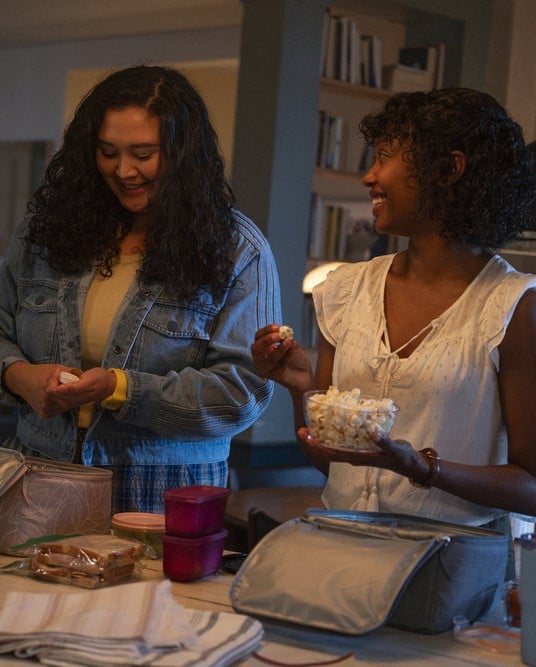
She did. That episode made me cry, and I didn’t think I would cry any more than in episode seven, The Man from Grozny.
David Katzenberg directed the hell out of that episode, with them all looking at the ceiling. Oh my God. With the transitions, that moment afterward was such a beautifully nuanced job. And then Alexander, the actor who played John Doe, was phenomenal.
What I love most about that episode and about the writer, Daniela Lamas, and what she did is that you have this character who is shut in and doesn’t talk. He communicates with his eyes and then suddenly gets to speak.
Everyone was so excited because we were like, Alexander, this is your chance, and he was excited because he got to talk versus blinking and looking around.
All the pieces came together beautifully, ensuring that everyone had an arc and understood what he was going through and how it pertained to and affected them.
David Katzenberg is now a very good friend of mine; he was tremendous.
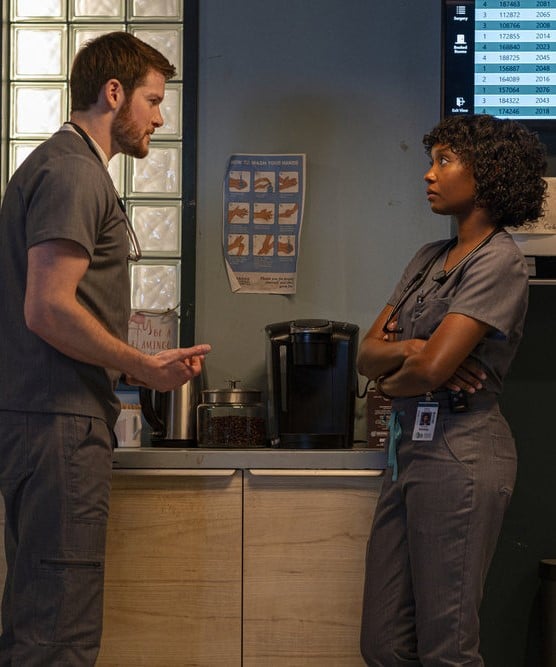
Absolutely. So, you’re very active on social media. Do you ever implement fan ideas in the series you work on?
Oh, from social media? When I worked on Brilliant Minds Season 1 Episode 3, I looked on Instagram. I found this fashion designer, Studio Dennis Vanderbroeck, who had done these incredibly huge fashion shows, and he used curtains for them.
When I saw these curtains move, I realized that’s what it’s like when I try to remember something, but I can’t.
It feels like I’m reaching for it, and it’s there, and then it flutters and falls, and the thought is gone. That’s what a memory feels like. That’s what it feels like. A curtain falls.
If we can project what Wyatt loves the most, which is his wife, onto that curtain, then that falls. That’s what he cares about the most, and he will lose at the end.
That’s why he initially rejected the surgery. He doesn’t want to lose everything, and then he’s left in this limbo space.
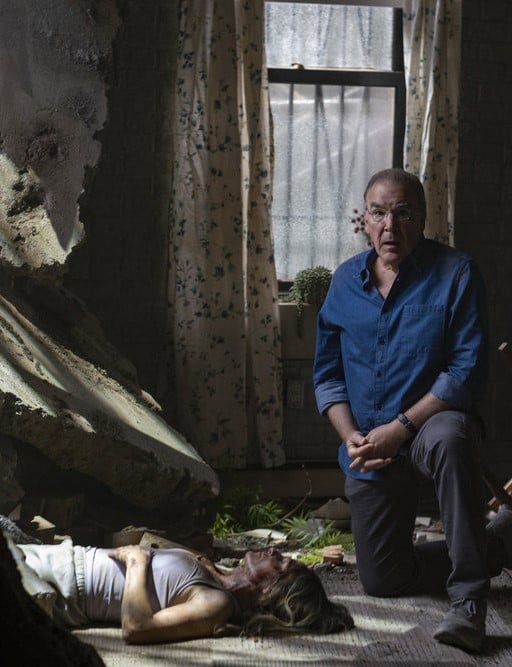
I’m grateful to Michael Grassi, the showrunner, and Sara Saedi, the writer, for being open. They actually rewrote the script a bit to talk about that limbo space because that’s what I feel like when I can’t remember something.
After seeing the curtains at Studio Dennis Vanderbroeck, I wondered how we could project onto a curtain. We discussed it with the production designer and the director, and we created this moment. We tested it a few times, and then we achieved it.
But I will say that what I was thinking in my mind came out to be what it was on screen, so I’m very grateful.
You can binge Brilliant Minds Season 1 on Peacock. We’ll update you when we learn of its renewal status.
This interview has been edited for length and clarity.
Grade The Brilliant Minds Season 1 Finale!
Watch Brilliant Minds Online

The post Director DeMane Davis Shares the Creative Process Behind Brilliant Minds, Including Ericka’s Emotional Breakdown appeared first on TV Fanatic.
Source: TV Fanatic

